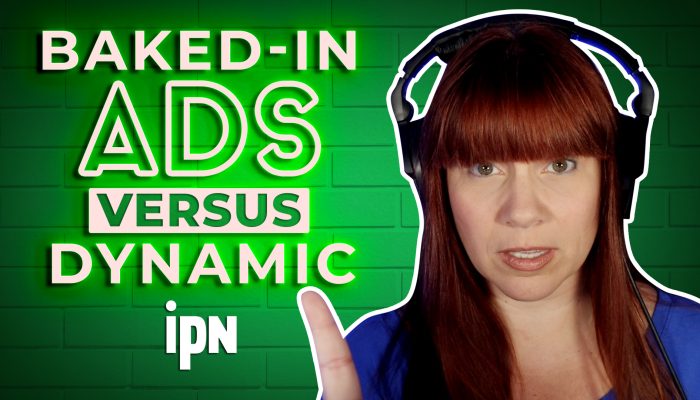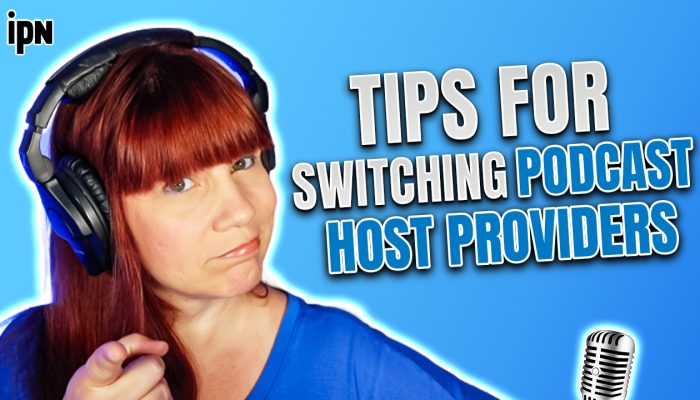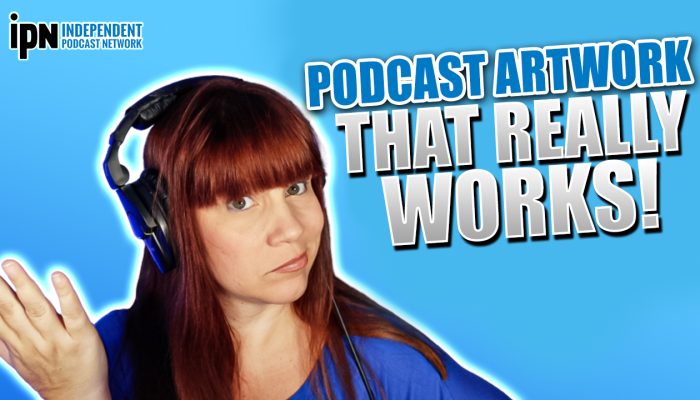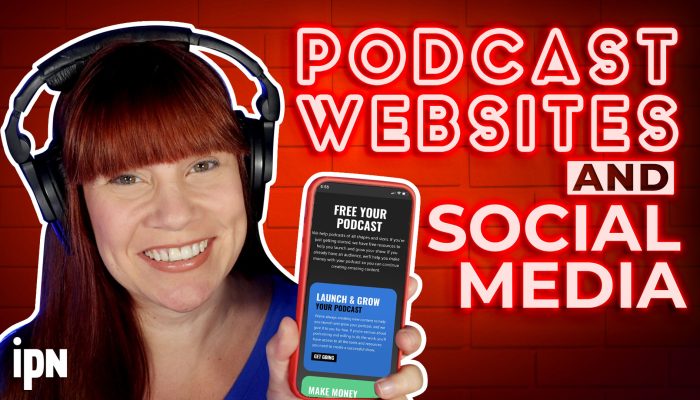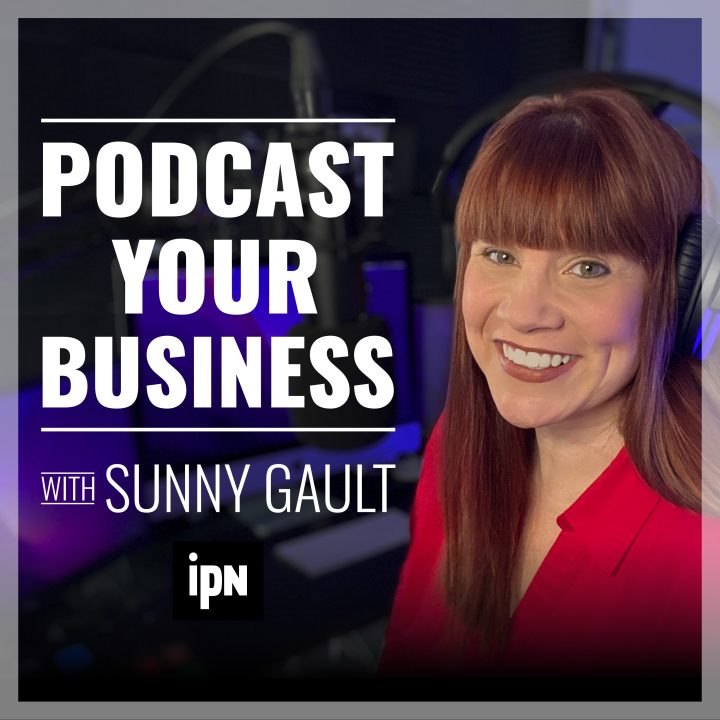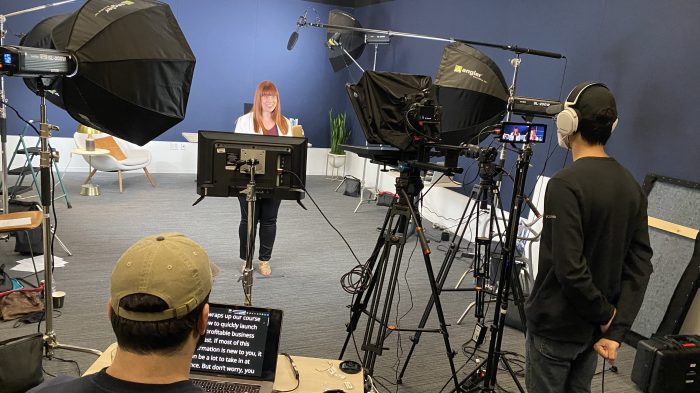
Personal branding is essentially the art of being yourself, but with purpose. It’s about showcasing the unique combination of skills, experiences, personality, and values that you bring to your podcast. Think of it as your podcast’s DNA – it’s what makes your show distinctly yours.
Consider your favorite podcasters. You can probably describe their style or unique perspective easily, right? That’s their personal brand at work. It’s what makes them recognizable and relatable to their audience.
Why Should You Become the Face of Your Podcast?
So, why does personal branding matter for podcasters? Let’s break it down:
- Differentiation: With millions of podcasts out there, a strong personal brand helps you stand out. It gives listeners a compelling reason to choose your show.
- Trust and credibility: A well-developed personal brand establishes you as an authority in your field. When listeners trust you, they’re more likely to engage with your content and spread the word.
- Connection: Personal branding allows you to forge a deeper connection with your audience. When listeners feel they know you, they’re more likely to become loyal fans.
- Opportunities: A strong personal brand can open doors beyond your podcast. It can lead to guest appearances, collaborations, and even sponsorship deals.
- Consistency: Your brand serves as a guide for your content, ensuring consistency across episodes and platforms. This helps listeners know what to expect and keeps them coming back for more.
The link between your brand and your podcast’s success is undeniable. Your personal brand isn’t just about you—it’s about what you offer your audience.
Developing Your Unique Voice and Personality
Your voice and personality are the heartbeat of your podcast. They’re what transform your show from just another audio file into a must-listen experience. But, how do you develop that voice and personality?
Identify Your Strengths
The first step in developing your unique voice is understanding what makes you, well, you. Start by asking yourself these four questions:
- What topics can you talk about for hours without getting bored?
- What unique experiences or perspectives do you bring to your niche?
- What do friends and colleagues say you’re great at?
- What aspects of your personality do people respond to most positively?
Don’t be afraid to dig deep. Your quirks, your humor, your way of explaining complex topics – these are all part of what makes your voice unique. Embrace them!
Craft Your On-Air Persona
Now that you’ve identified your strengths and passions, it’s time to bring them to life on your podcast. Here’s how:
- Be yourself, but amplified: Think of your on-air persona as yourself at your best. You’re still you, just a bit more energetic and focused.
- Find your tone: Are you the friendly expert? The passionate enthusiast? The curious learner? Your tone should align with your personality and the content of your podcast.
- Practice, practice, practice: Your voice will evolve as you become more comfortable behind the mic. Record yourself, listen back, and refine your delivery.
- Embrace imperfection: Stumbles and “ums” are part of natural speech. While you should aim for clarity, don’t strive for robotic perfection. Your human moments make you relatable.
- Use storytelling: Personal anecdotes and stories are powerful tools for connecting with your audience and showcasing your personality.
Stay Consistent
Consistency is key to building a strong personal brand. Your audience should be able to recognize your voice and personality whether they’re listening to your podcast, reading your tweets, or watching your Instagram stories. So, develop a few unique identifiers that people can use to instantly recognize your brand. This includes both visual and audio cues.

Creating a Strong Visual Identity
While podcasting is primarily an audio medium, your visual identity plays a crucial role in attracting new listeners and reinforcing your brand. A strong visual identity helps your podcast stand out in crowded directories and social media feeds. There are a few key assets you need for your brand identity:
- Logo: Your podcast logo is often the first visual element potential listeners encounter. It needs to be eye-catching, memorable, and representative of your show’s content and style.
- Visual style for social media: The visual identity of your podcast extends beyond your logo to all your social media presence. Consistency across platforms helps reinforce your brand and makes your content instantly recognizable.
- Professional headshots: As the face of your podcast, high-quality images of you are essential. They humanize your brand and help listeners connect with you on a personal level.
Leveraging Social Media to Build Your Personal Brand
When used effectively, social platforms can amplify your voice, showcase your personality, and create a community around your podcast.
Choosing the Right Platform
Not all social media platforms are created equal, and you don’t need to be everywhere at once. The key is to choose a social media platform you can focus on where your target audience spends their time. Here’s a quick guide:
- X (formerly known as Twitter): Great for real-time engagement, sharing quick thoughts, and participating in industry conversations.
- Instagram: Ideal for visual content, behind-the-scenes glimpses, and short-form video content.
- Facebook: Useful for building community through groups and longer-form content.
- LinkedIn: Perfect if your podcast focuses on professional or industry-specific topics.
- TikTok: Excellent for reaching younger audiences and showcasing your personality through short videos.
- YouTube: Ideal for sharing video content, like podcast clips or full video versions of your episodes.
Engaging with Your Audience and Building Relationships
Social media is a two-way street. It’s not just about broadcasting your message; it’s about fostering genuine connections with your audience. Here are some strategies for meaningful engagement:
- Respond to comments and messages promptly and personally
- Ask questions to encourage discussion among your followers
- Create polls or surveys to gather audience feedback
- Host live Q&A sessions or AMAs (Ask Me Anything)
- Share and comment on content from your listeners or peers in your niche
- Use platform-specific features like Instagram Stories or Twitter Spaces to interact in real-time
Creating Shareable Content
To expand your reach, focus on creating content that your audience will want to share. Make sure to optimize your content for each platform. For instance, use hashtags on Instagram and Twitter, create vertical videos for TikTok, and write longer, more detailed posts for Facebook or LinkedIn.
Conclusion
Your personal brand is your podcast’s secret weapon. It’s what transforms casual listeners into devoted fans, opens doors to new opportunities, and gives your show a distinct identity in a sea of content. Authentically showcasing your personality, expertise, and passion creates a connection with your audience that goes beyond the audio content of your episodes.


